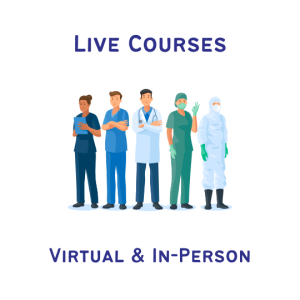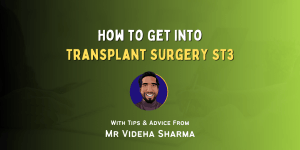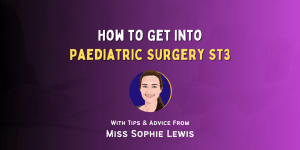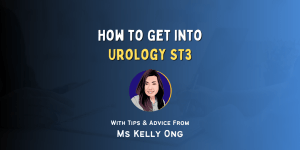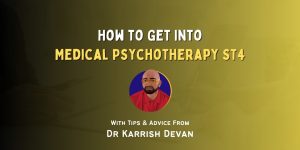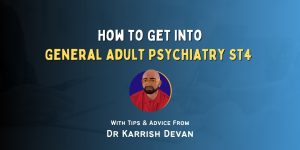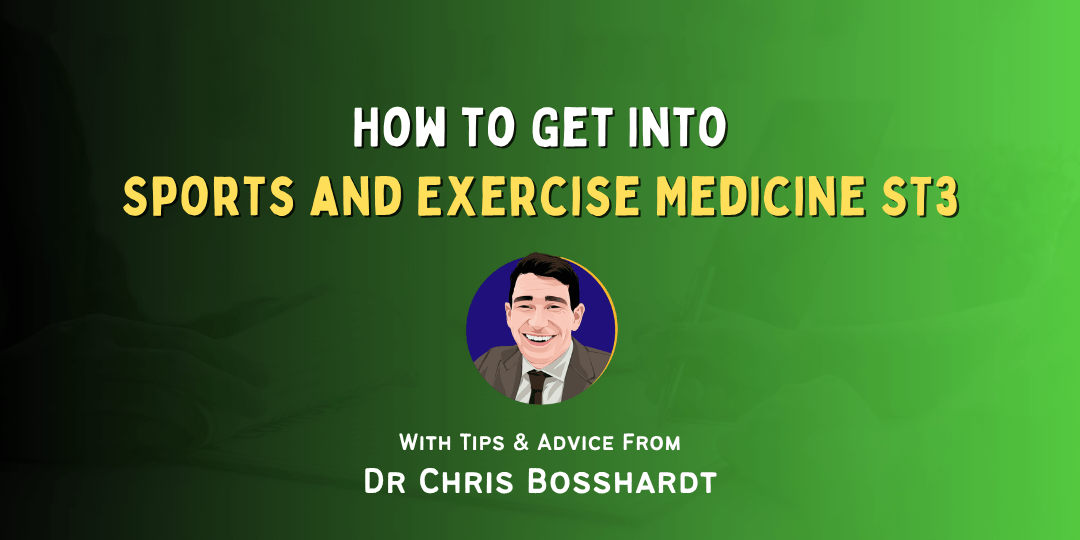
Published October 24, 2025 | Updated November 11, 2025
By MedCourse
Useful, relevant, and interesting content for UK Junior Doctors.
About the Author

Chris Bosshardt, Sports & Exercise Medicine Registrar, London
I built up experience and exposure in SEM from my foundation programme, including F3-5. I completed an MSc in Sports, Exercise & Health, and then completed my training in General Practice (one of the 3 routes into SEM Specialty Training). All the while, I was gaining part-time roles in Sports and MSK medicine. After 2-3 years working as a GP, I decided to apply for SEM Specialty Training.
- UCLH (Institute of Sport, Exercise and Health)
- League 1 Club Doctor, Football; FA Para-Football Doctor
- Independent Match Day Doctor, Premiership Rugby
Courses & Conferences to Attend
BASEM arranges a national annual conference, they offer student rates of membership, and it is a great place to start. Their website also offers courses, some useful info sheets, as well as a job vacancies platform. They have student poster competitions, so worth submitting to try and gain some valuable application points.
There are student groups who also offer talks and conferences; if there isn’t something local, consider setting up a small group. Helping on these committees showcases great ‘commitment to specialty’
Part of this section is seeing what points are on offer pre-interview. Teaching courses are easily arranged, interesting (in my opinion), and heavily weighted in the online application system, so worthwhile to look for, and are often available locally.
An SEM working week is so different from one person to the next, with the ‘portfolio’ nature being a big attraction of the specialty.
Use your taster week or study leave to shadow professionals in the specialty or in your area of interest, and ask questions about how people got to where they are. There are lots of different routes!
When applying for specialty training, many people have a diploma or MSc degree, which is included in many job specifications. If you’re able to, this is an excellent way to gain knowledge, experience, contacts, and to develop an interest.
It’s important to remember the 3 areas of SEM: MSK medicine, Exercise medicine, and Team and Sport Medicine. Make sure you have a rounded experience across the board (with exercise medicine often being the most ignored).
If serious about working in sport, then look to complete a pre-hospital trauma course specifically related to sport, which is a mandatory qualification for most levels (offered by RFU (PHICIS), FA (ATMMIF), and many others).
How to Maximise Your Portfolio
Part of the problem with any job is that employers look for experience, but how do you get that when you’re inexperienced?
The best way around that is to volunteer, initially at mass participation and events, such as a marathon or cycle event – these often have large medical provisions and therefore good supervision.
Look at job offers online – even if underqualified, send a CV with a cover letter expressing your interest to help or shadow. This has helped me as a point of difference in competitive job applications. You may get a few ‘no’s or not hear back, but eventually something will stick.
Making the Most of Your Day Job
Make sure your portfolio has a spread of the 3 domains. Exercise medicine is often overlooked, so it can be a differential, and there has been a huge push by the faculty recently in this area. Look at the Moving Medicine website to see if there’s anything you can set up locally for a project, ideally something you can close the loop with.
Look at the application online, look at previous scores, and look at what you’ll need to get near an interview, and where you can upgrade for more points. Teaching skills, posters can be heavily weighted, and can show great commitment to the specialty, so see where you can improve.
Keep looking for opportunities; many websites have job sections, where you can apply for roles to help boost your experience and CV. Even if you think you won’t get the role or can’t fully commit to it, you can state in your cover letter that you’ll be willing to help or assist, which shows willingness, and most places look for a pool of people to help cover absences.
Making the Most of Sports & Exercise Medicine ST3 Placements
It’s unlikely, as it’s still a small specialty, mostly outpatient. Look for linked opportunities (eg, non-operative management in Ortho), see if there is any scope for involvement in any ongoing QIPs. There is always scope for looking at rehab or activity levels and how they affect outcomes that can translate into interesting and relevant research (which can translate to posters, conferences, and application points!).
What About Non-Sports & Exercise Medicine ST3 Placements?
Physical activity and exercise medicine apply to any job. Have a look at the national guidelines, and if there are any specific recommendations for your current role. Look to see if there is a simple QIP you can arrange to boost activity levels on the ward, or where you are. Use the Moving Medicine website, which has great resources to help with this, with advice, evidence, and funding tips. Work that into a QIP, even better if you can close the loop, and submit it to some conferences as a poster. You can get a lot of application points for some simple (but very important and beneficial!) work.


